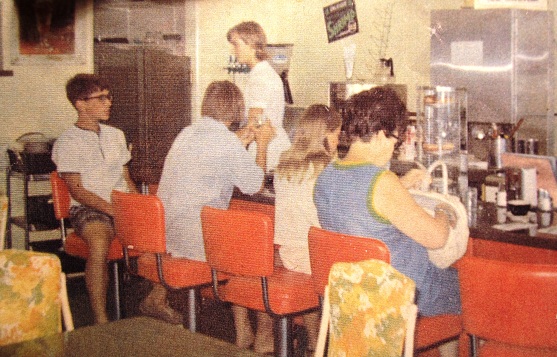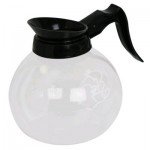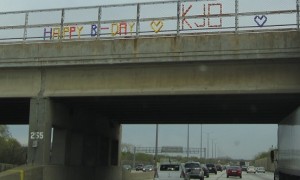My first official job was as a waitress in a small California diner, and I tested the cook’s patience as she tried to teach me serving skills. One day I was responsible for restaurant chaos as a result of not having listened carefully about the coffee machine.
In those days, no homeowner had a coffee maker in her kitchen, and I had no idea how they worked. Our restaurant had a big one with 3 burners and 3 pots, a complicated contraption at best.
One morning during a breakfast shift, I made a fresh pot of coffee for the men lined up at the counter enjoying ham and eggs. When I grabbed the pot and swung it around for coffee refills, the bottom fell out of the glass pot, along with all the scalding coffee. Those seated on the stools leaped up in unison as if they’d been choreographed to do so, shouting their complaints.
The cook charged in from the kitchen, immediately sizing up the situation. The coffee pot, half in my hand and half in glass shards on the floor, had been sitting empty on a hot burner. As the fresh coffee dripped into it, nothing appeared different, but the pot had cracked, and its contents were doomed.
A glass carafe isn’t the only thing subject to its bottom falling out. The proverbial bottom can fall out of life, too. When everything breaks apart we ask, “How did we get burned so badly?” Usually it has something to do with being on a “hot seat” too long.
Although the coffee pot incident was completely my fault, we’re not always the ones responsible when the bottom falls out of life. It might be a convergence of unusual circumstances or the result of an attack by someone else. It might even be God, who sometimes lets us fall to a place of brokenness on purpose. (When he does, though, it’s only after he’s tried to get our attention in gentler ways first.)
If we reach out to him for help when we’re at the bottom, the result is a lifting-up with better results than if we’d never fallen at all. To stay in a hot spot that’s burning us with increasing intensity does more damage than if we break apart, for one reason: it’s God who is willing to put us back together.
That restaurant mistake showed me heat can cause disaster. But in the 46 years since learning that lesson, I’ve been careful not to put glass on a hot burner.
When the bottom falls out and God picks up our broken pieces, the fresh beginning he offers comes with increased smarts, and we usually do things differently after that. Although we may end up with a burn scar, it’s always worth it.
“The sacrifice you desire is a broken spirit. You will not reject a broken and repentant heart, O God.” (Psalm 51:17)






